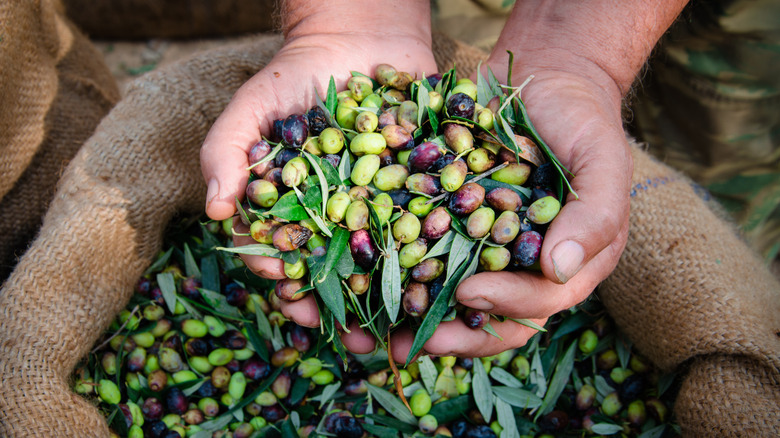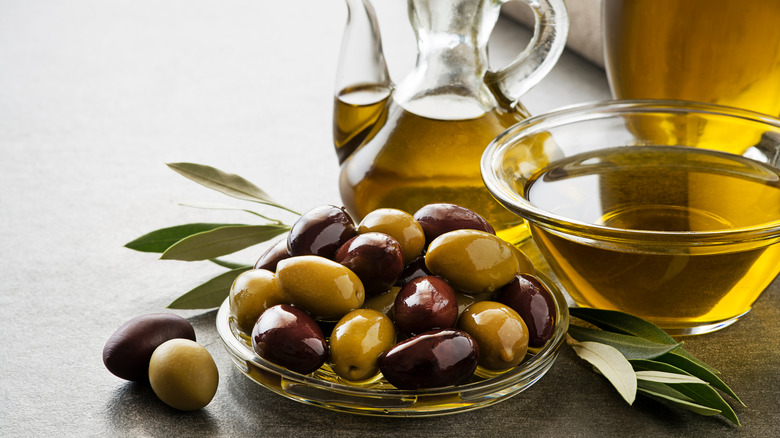Why You'll Never See Fresh Olives At The Grocery Store
Take a trip to any grocery store, and you'll likely find countless types of olives, ranging in color, size, seasoning, and storage method — but there is one variety of the salty, briny snack that is conspicuously absent from supermarket shelves: fresh, raw olives.
The reason is actually quite simple. According to the American Chemical Society (ACS), fresh olives contain an overwhelmingly bitter compound called oleuropein. This substance renders the stone fruit "absolutely disgusting" when eaten raw.
While fresh olives are generally considered to be inedible, consuming one raw won't actually cause any harm. The fruit is safe — albeit severely unpleasant — to eat. National Geographic explains that, olive trees developed the bitter taste as a defense mechanism to discourage animals and organisms from eating their fruit.
Because olives contain quite a bit of oleuropein (up to 14% by dry weight, as noted by the ACS) they require one of several treatments to remove the unwanted compound. It's only after one of these processes that olives are ready for consumption.
How olives are processed to become edible
According to DeLallo Foods, a food supplier specializing in Italian goods, olives undergo a curing, or fermentation, period to diminish the presence of oleuropein. There are a few main ways to achieve this effect: natural brine, lye, and salt- or air-curing.
The natural brine method consists of simply soaking fresh olives in a carefully-maintained saltwater solution for three to 12 months. However, because of the extended time period required to naturally brine olives, processing the fruit with lye prior to brining has become a popular way to expedite the process.
Lye, also called caustic soda or sodium hydroxide, is a corrosive substance that can be harmful if handled incorrectly; That being said, lye has several safe uses and is a key component in the soap-making process. In the case of olives, noted DeLallo, the fruit is washed after being exposed to lye, ensuring no traces of the chemical remain. The olives are then placed in a natural brine, where they ferment much more quickly than those not treated with lye.
Salt- and air-cured olives, meanwhile, are dehydrated rather than brined. As such, the process results in olives that are chewier and more akin to raisins than those fermented in liquid.

